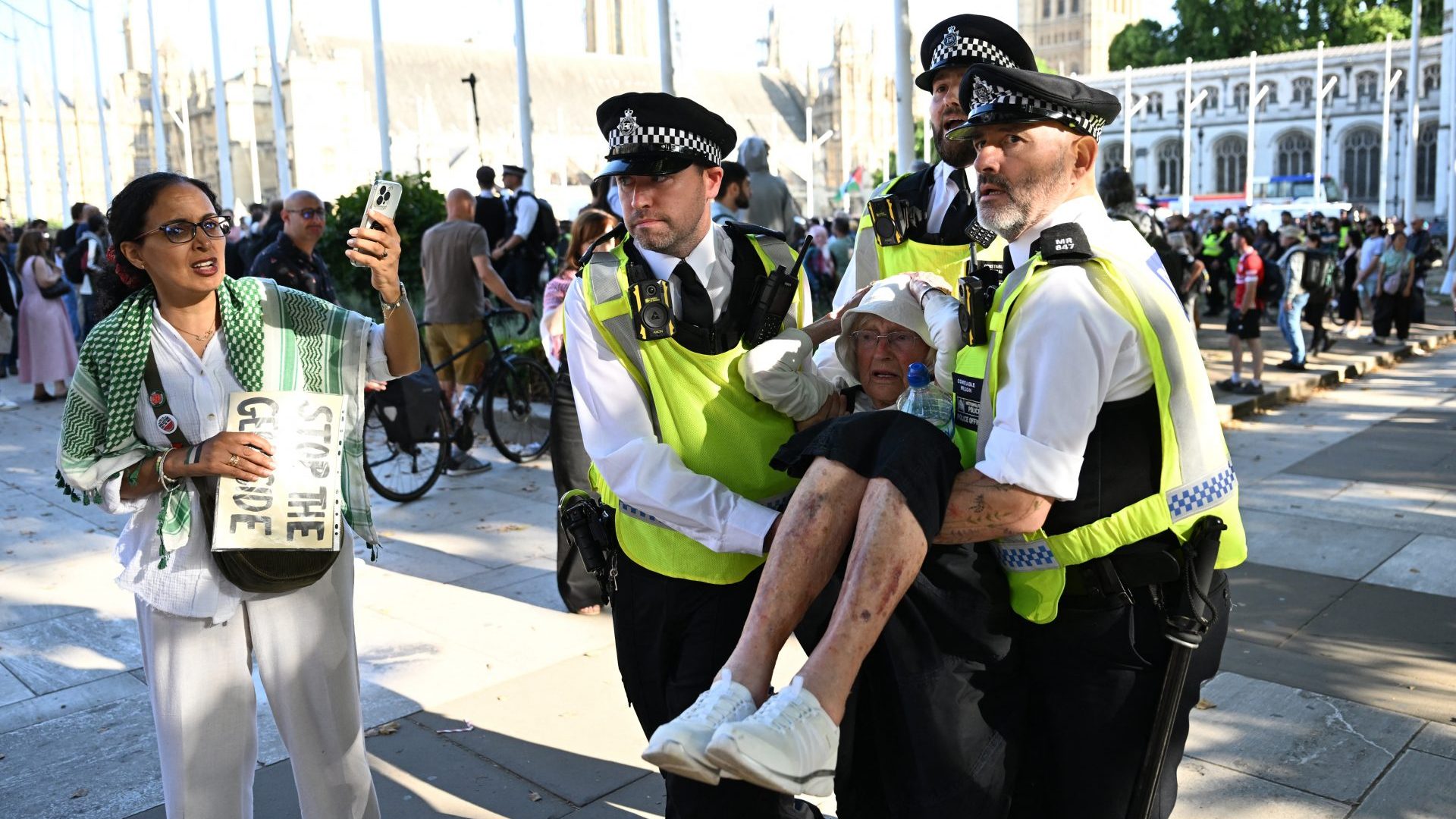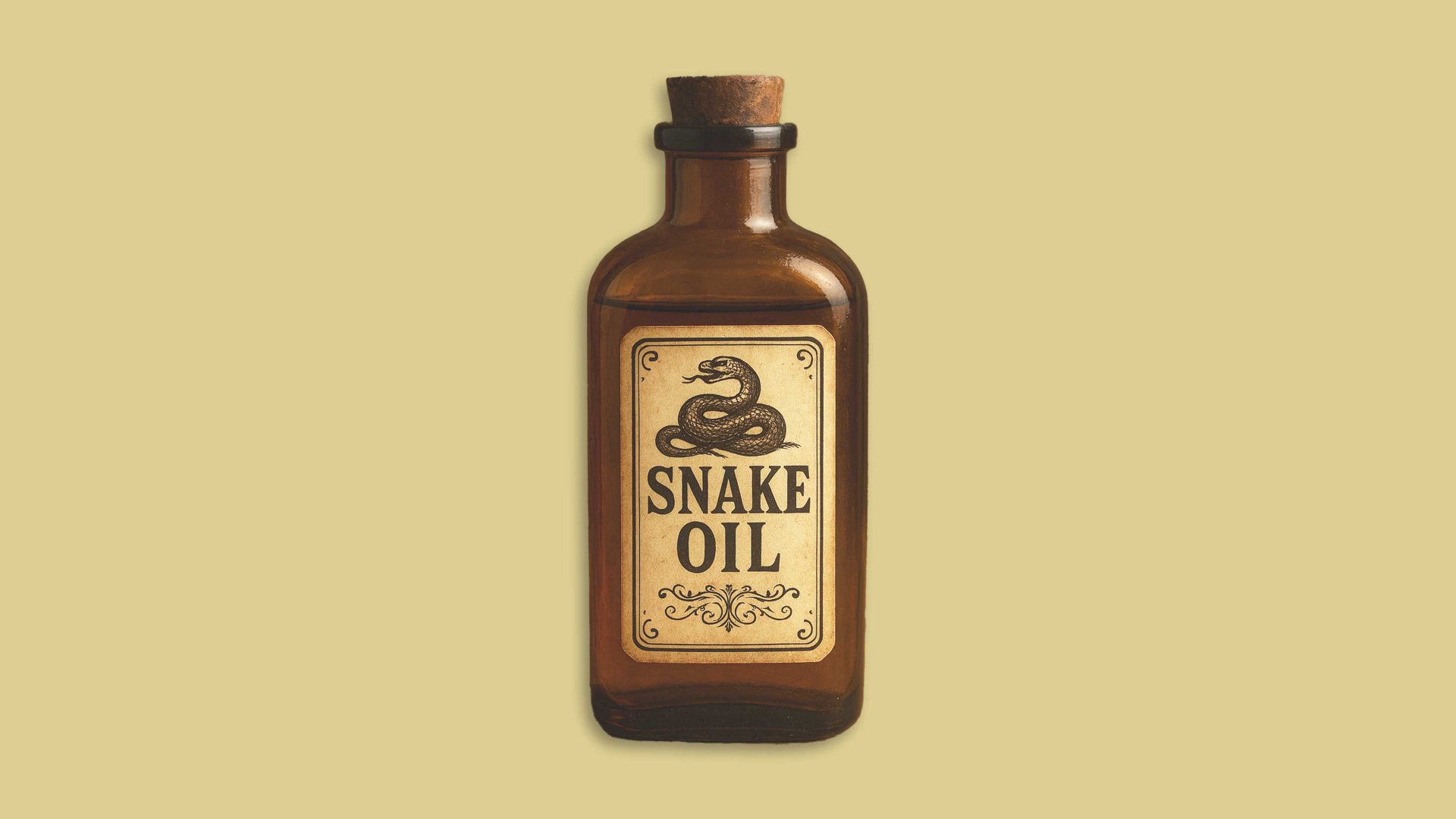My heartiest thanks to Frances Kelly (“We are not the terrorists”, TNW #454). She has done what many more of us in her generation would wish to have the freedom to do.
Being the sole carer for my bed-bound and dementia-suffering 90-year-old husband, I appreciate her standing, or rather lying down, for me and enduring the indignities which our benighted government has seen fit to impose on conscientious protesters.
Patricia Thompson
Kibworth Beauchamp, Leicester
Palestine Action may be wondering why they are a proscribed organisation; breaking into a UK military building was stupid and naive. What would have been the reaction if, say, Afghan immigrants had done the same thing? And why should the government even have to think about motives, given the potential threats the UK faces?
The net result? The subject getting attention is now Palestine Action, not atrocities in Gaza. But hey, there’s nothing like laying a claim to victimhood, is there?
Mike Dowd
I am no fan of Benjamin Netanyahu, but thought your cartoon on page 19 of TNW #454 was disgraceful.
David Singerman
Southampton, Hampshire
Re: Matthew d’Ancona’s “The sick age of conspirituality” (TNW #454). I was heartened by Wes Streeting’s robust response to Nigel Farage’s equivocations about science and medicine. Tim Minchin’s line comes to mind: “What do you call alternative medicine that’s been proven to work? Medicine.”
Edward Field
I was struck by Matthew d’Ancona’s phrase “Its heartless flipside is that those for whom it does not work are made to feel that they have failed. They are not just ill. They are weak.”
In my 30+ years as a UK Baptist minister, I often came across a similar attitude in charismatic Christian circles: “Just pray for healing, then believe you are healed.”
Which of course meant that anyone who wasn’t healed obviously didn’t have enough faith. Classic victim blaming.
Tony Jones
In August, both my sister and I had urinary tract infections (cute, eh?).
A visit to her GP meant antibiotics, then a repeat prescription when they didn’t work. Later that week she was admitted to hospital with borderline sepsis.
I chose to take control of my own health. I drank copious amounts of garden herb teas, had lots of fresh air, continued with my fasting regime and was given daily treatments by my osteopath husband.
We don’t need to use Donald Trump’s opinions as any kind of benchmark, but we can choose to take more control of our health. Big pharma exists to make money – let’s not forget that.
Anna Grey
Hampshire
Painting one side of a debate as already correct is at best divisive. Matthew d’Ancona implies that trying any alternative therapy must be the product of a deluded mind.
Best just join the queue to overload our hard-working medical professionals instead.
Chris Grey
Re: Alastair Campbell on Curtis Yarvin (Diary, TNW #454). Anyone advocating dictatorship or a monarchy, as Yarvin does, should remember that humans are only 72% reliable at our very best. A team, by contrast, will often see 100%. This is why democracies defeat dictatorships.
Peter Bruce
Thank you for John Osborne’s Great Life of Emilie Schindler (TNW #454). What a remarkable human being she was.
Kate Burge
Suggested Reading

Letter of the week: Trump has turned politics into a crusade
Jonn Elledge seems to be confused about what to do with a variety of bears (Nerd’s Eye View, TNW #454). In my experience, I’ve found it best to remember this guide of how to deal with them:
Black; fight back
Brown; get down
White; good night.
However, carrying a marmalade sandwich might be enough to avoid a hard stare.
Chris Purcell
West Gnawood, London
Re: “An evening with Obama” (TNW #454). While his oratory skills have never been questioned, the promise Barack Obama brought never fully manifested itself. Perhaps unfettered access to the knowledge presented once in the Oval Office forced compromises he couldn’t have imagined. Certainly, enthusiasm for many of his desired reforms was far from universal.
No such compromises brought about by having the responsibility of high office and a duty to benefit the whole population has troubled the current incumbent.
Keith Brisley
Re: Peter Trudgill’s article on stress (TNW #454). I’ve always been interested in the way most English-speakers stress the less semantically significant syllable in some four-syllable words – like “contROversy”, “barBITurate” and “biOgraphy”.
I believe this quirk arises from the natural rhythm of English speech, based on the iamb: two syllables, the first unstressed, the second stressed. The “da-DUM” metre echoes the heartbeat.
That said, my inner pedant always shudders when I say “kilOmetre”.
Vera Lustig
Walton-on-Thames, Surrey
Peter Trudgill discusses where to put the stress in “marathon”. I think you’ll find that the late, great national treasure Eddie Waring had that one nailed in It’s A Knockout!
Steve Boulding
Baschurch, Shropshire
Re: Mick O’Hare’s article on the 200th anniversary of train travel (TNW #453), I must mention the Tory politician who was the first railway fatality: William Huskisson MP.
He was invited to the opening of the Liverpool and Manchester railway on September 15, 1830. The day included a locomotive bearing dignitaries, driven by George Stephenson.
After alighting from the train, Huskisson intended to speak to the Duke of Wellington. Another train being pulled by Stephenson’s Rocket approached on the other line and, misjudging the gap, Huskisson was hit. He died later that day.
Robert Boston
Kingshill, Kent
Sadly, Charlotte McDonald-Gibson’s observations in “Back to school in Trumpland” (TNW #443) didn’t shock as much as they should have done. Even though we are far (I hope) from having troops on our streets, regular drills for shooting events are happening in our own schools.
My granddaughter says there are drills at her school. What a world for our children to negotiate.
Debbie Campbell
Norwich, Norfolk
As someone who is old enough to remember pre-decimal money, may I point out an error in “When Stalin went to the chippy (TNW #453)? Edith Simon’s wages of 10/6d a week would be 52.5p today, not about 12.5p.
Colin Price
Ilford, Greater London
BELOW THE LINE
Re: Marie Le Conte’s “Hollow man” (TNW #454). Don’t forget Robert Jenrick’s dealings with Richard Desmond, the Tory donor and property developer who was able to avoid £45m in tax when Jenrick approved his housing scheme one day before a community infrastructure levy came into force. Also, Jenrick’s mean-spirited insistence on painting over the Mickey Mouse murals in an immigration centre (too welcoming to children). Nasty little man.
ROSALIND RUSSELL
Robert Generic will be the next leader of the Tories after the election, with his 20 MPs.
SIMON POCOCK
Re: Patience Wheatcroft on the Conservative conference (TNW #454). The world moves in mysterious ways, and I’m now hoping for a Tory revival to take votes off Reform.
How clever do the Conservative European Research Group look now in jumping on Nigel Farage’s Brexit to get Ukip votes? Almost as clever as the Imperial German Army smuggling Lenin into Russia. The famous photo of a Red Army soldier raising the Soviet flag over the ruins of the Reichstag shows where cleverness can sometimes get you.
CHRISTOPHER HARRISON



